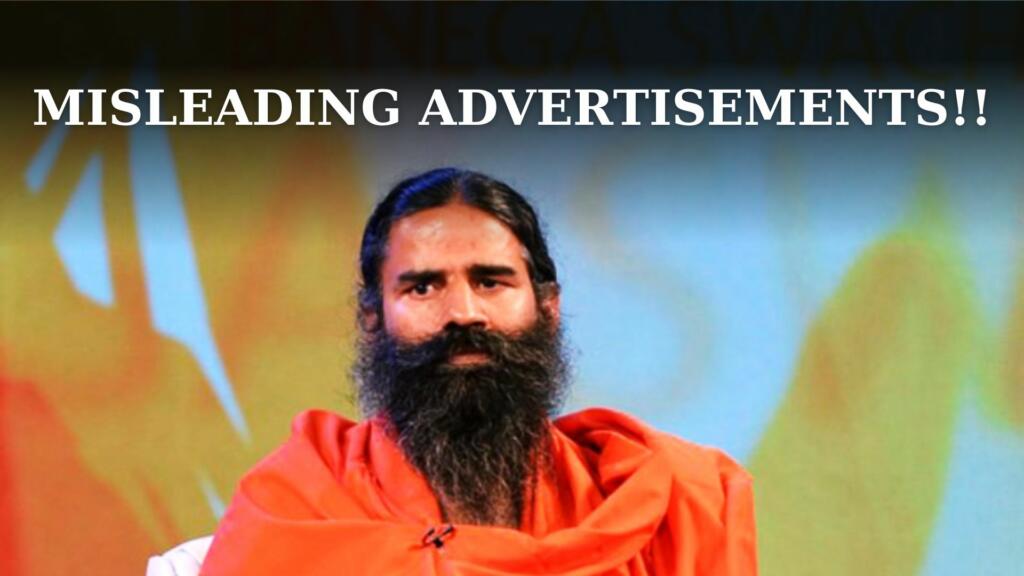The Supreme Court of India, in a significant move, has issued a show-cause notice to Patanjali Ayurved, the well-known company co-founded by yoga guru Ramdev, and its managing director Balakrishna. This action comes as a response to the company’s alleged breach of its promise to refrain from making misleading claims in its advertisements for medicinal products. The court’s stern directives reflect a broader concern over the dissemination of inaccurate information regarding health remedies, calling attention to the potential harm such practices can inflict on consumers.
Backdrop
The legal rumor unfolds against the backdrop of ongoing disputes between Patanjali Ayurved and the Indian Medical Association (IMA) regarding the veracity of the company’s advertising campaigns. Patanjali had previously committed to abstaining from publishing advertisements that made false claims about its products and disparaged modern medicine and vaccination efforts. However, allegations surfaced suggesting that Patanjali continued to flout these assurances, prompting the Supreme Court to intervene.
Court’s Ruling
In its recent ruling, the Supreme Court not only issued a show-cause notice to Patanjali Ayurved and its managing director but also imposed immediate restrictions on the company’s advertising practices. Specifically, Patanjali has been barred from disseminating advertisements that claim to cure illnesses enumerated under the Drugs and Magic Remedies (Objectionable Advertisements) Act, 1954—a legislation encompassing 54 diseases. The court’s unequivocal stance underscores its commitment to upholding consumer protection and reigning in deceptive marketing tactics in the healthcare sector.
Government’s Accountability
The Supreme Court did not shy away from admonishing the government for what it perceived as lax oversight incombating misleading medical advertisements. Expressing dismay over the government’s purported inaction, the court demanded a detailed affidavit outlining the measures undertaken to curb the proliferation of inaccurate representations of medicinal products in the media. This rebuke highlights the imperative for regulatory bodies to bolster their efforts in safeguarding public health interests and ensuring transparency in advertising standards.
Warning to Patanjali
In no uncertain terms, the Supreme Court cautioned Patanjali and its employees against disseminating any misleading information regarding the efficacy of their products in treating diseases. This admonition serves as a stark reminder to corporations of the legal repercussions they may face for breaching advertising regulations and compromising consumer welfare. The court’s unwavering stance reflects its determination to hold errant entities accountable for their actions and deter future violations.
Looking ahead, the Supreme Court’s directives are poised to have far-reaching implications for the regulation of medical advertisements in India. By tasking the government with devising a comprehensive strategy to combat misleading advertising practices, the court signals its intent to address systemic flaws in the oversight of the healthcare industry. Additionally, the court’s scrutiny of Patanjali’s advertising tactics underscores the need for heightened vigilance in monitoring claims made by pharmaceutical companies and ensuring adherence to established standards of truthfulness and accuracy.
In conclusion, The Supreme Court’s intervention in the case of misleading medical advertisements represents a significant milestone in the ongoing battle to uphold consumer rights and promote ethical practices in the healthcare sector. By holding Patanjali Ayurved and other entities accountable for deceptive advertising, the court sends a powerful message that misleading claims will not go unchecked. As the legal proceedings unfold, stakeholders must remain vigilant in advocating for transparency and accountability, thereby safeguarding the integrity of healthcare information and protecting the welfare of consumers across the nation.
Also Read: Deciphering India’s Fierce Message: The UN Budget Slash
